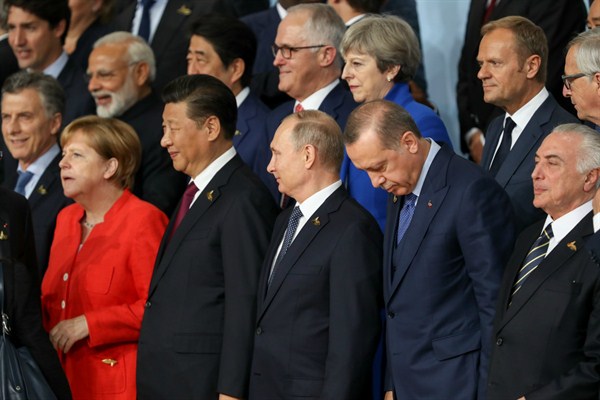Over the past 25 years, three explanatory models of the future of international relations have emerged to dominate how American foreign policy analysts see the post-Cold War world. All have been influential in debates over that time, serving as prisms that helped simplify the complexity of the world’s great challenges to make them more manageable. But if some of their conclusions and predictions have been borne out, important aspects of all of them have been debunked by events.
Now we find ourselves in a hybrid world that has visible traits of all of these models, but bears little resemblance to any single one of them.
The first of these intellectual constructions, articulated by Francis Fukuyama just after the end of the Cold War, saw the outcome of the Cold War as inevitably leading to the ultimate triumph of liberal democracy over illiberal orders—the “end of history.”

